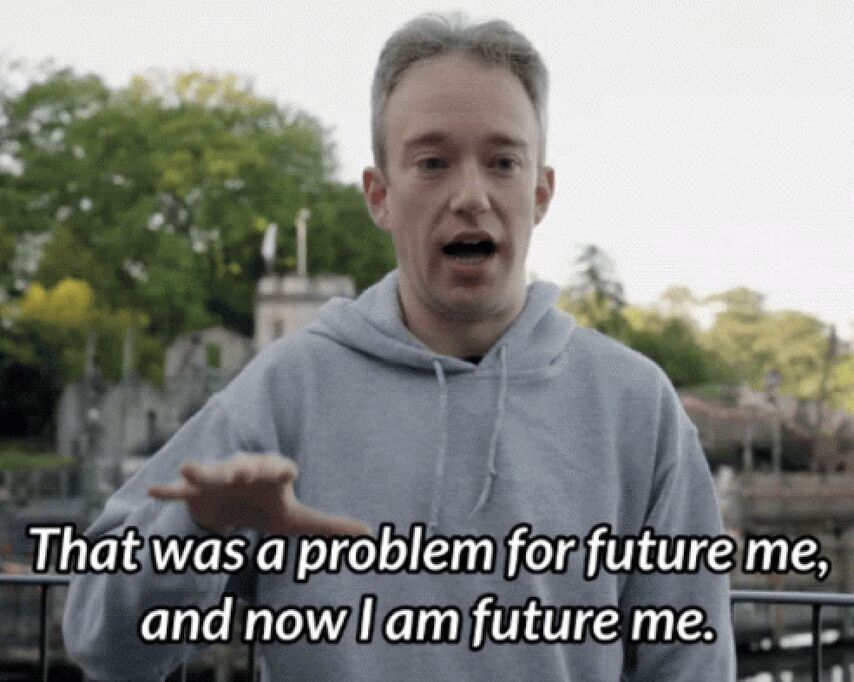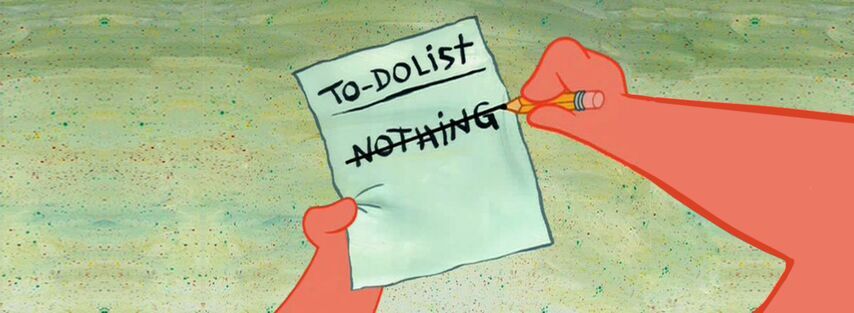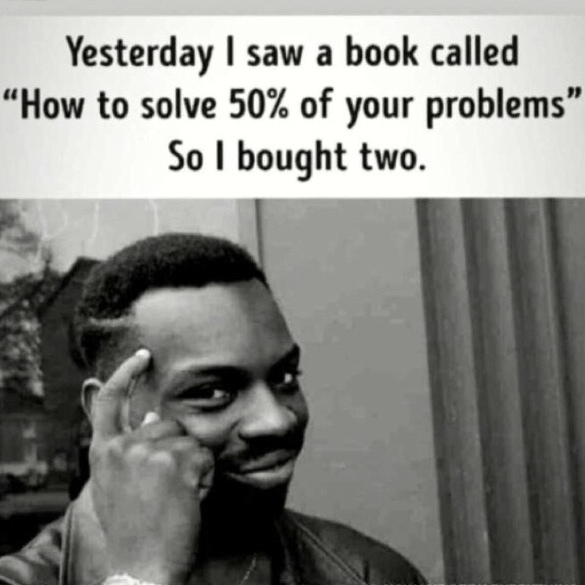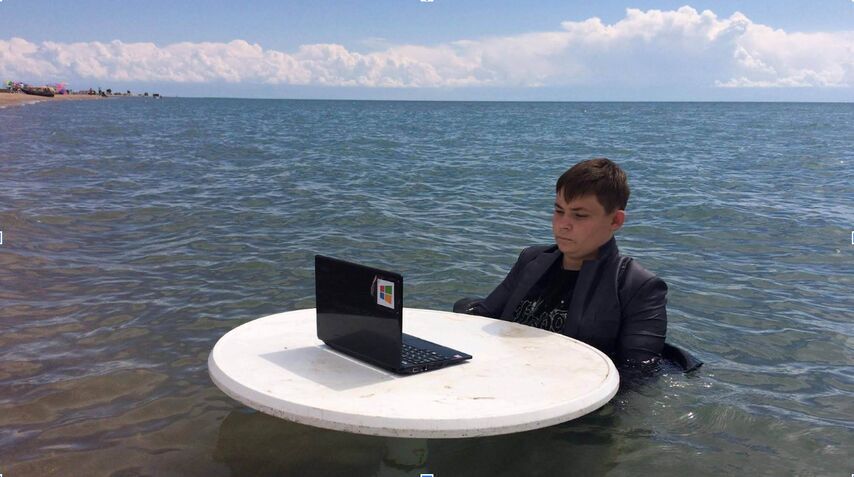On the Internet, you can find a bunch of collections like "40 tips to help you become more productive." Such collections usually say only one thing – the author did not manage his own time very effectively, spending it working on a similar text. I think this is the most important principle of increasing productivity – the point is not to work as long as possible, but how to use the time allotted for work effectively.

Let's look at why productivity often has problems. First of all, it's very easy to waste time these days. Surely you have found yourself in a situation where you could not stop scrolling through videos on TikTok or YouTube, watched a series avidly, or opened a video that you were not going to watch, but the cover “forced” you to do it for some reason. We have become victims of processes that are designed specifically to divert our attention from what is truly important to us. Dealing with distractions is an important part of your productivity journey, but it's far from the only one.
Many people think that productivity is about working long and hard, but this is not entirely true. If you work in an office from 9:00 to 17:00, then working from 7:00 to 19:00 will not necessarily increase your productivity. In fact, it will rather reduce it. This happens because the time we spend on tasks is spent less efficiently. The essence of productivity is to make better use of the time we have. Confirmation of this thesis is the four-day workweek, which is sometimes used in modern companies. According to their data, a 4-day week is practically no different in efficiency from a 5-day one. If you spend 20% less time and get the same result, then you increase your productivity.
For players, this is especially important – you can be very capable by nature, but if you use your resources unproductively, you most likely will not achieve what you dream of. And most of the regulars, instead of clear poker goals, have only a vague idea of success, such as “make a ton of money”. So let's first understand what exactly you want to achieve.
Goals
One of the best ways to set goals is to imagine yourself in the future. In this future, you are living the perfect life. Try to imagine what your ideal week might look like and answer the following questions:
What are you doing during this perfect week?
– How much time do you spend at work?
– Perhaps you do not work at all, since you have enough savings?
– Maybe you enjoy your favorite job, and poker has become a hobby?
Everyone will have their own idea of this perfect week. Take the time to visualize this week in great detail and think about goals that will align with it. For example, if your goal is to become a professional player, try to figure out how many hours a week you will need to play, how much money you would like to earn, and at what limits it would be realistic to achieve this.

Chances are, there will be significant differences between your ideal week and what's happening now. If not, then congratulations, you have reached your goals, maybe it's time to set new ones :)
When we already have long-term goals, it's worth considering what your ideal week might look like now. This week should include activities that will help you get closer to your ideal week in the future.
The next question to think about is how what you are doing now relates to your goals and ideal week in the future. Many players find that this connection is very conditional or completely absent. The player can spend a lot of attention and energy on some business, and feel productive because of this, but in reality, his efforts will be ineffective, since this hectic activity has no connection with the goals.
Let's say your goal is to organize a decent passive income for yourself or establish a business that does not require close attention. And now you play poker 40 hours a week. Most likely, in the end, you will become a very decent player, but there is a discrepancy here – your weekly affairs have nothing to do with the final goals. It also often happens among professional players that actions are connected with goals, but do not lead to them in the most effective way. Let's say you want to become a professional cash game player, but spend a lot of time watching MTT streams. Of course, this is a somewhat simplified view, but by regularly relating your actions to your goals, you will become more effective. Moreover, such an analysis is useful in all areas, not limited to poker.
We recently learned about other techniques that will help formulate long-term goals from mental coaches.
Planning
When we have decided on the goals and the things leading to them, it's time to start scheduling. We need three types of organizers.

General plan for the week
For this, Google spreadsheets or an online calendar are suitable. You need to write down what your ideal week might look like now and check if all the planned activities are really related to your goals. And also make sure that all our final goals are also fixed. If any of the goals are not reflected in it, it must be corrected.
After filling, our plate needs to be tested for feasibility. Do not forget about free time and rest. Burnout is a real problem, especially for poker players. There is a temptation to schedule work activities all the time from 6 am to midnight, it will seem that you are insanely productive, but in reality, the picture will be just the opposite – constant fatigue will allow you to function, at best, at 40% of your usual efficiency.
Events Calendar
I use a separate online calendar for these purposes. There I record personal poker training, events, concerts, trips to the doctor, and meetings with friends. These events take precedence and influence your ideal week. Let's say you usually have a Sunday night reserved for grinding, but this week there's a party you'd like to go to. If this doesn't happen every week, then it's okay – go and have fun without remorse.
It turns out that we have a schedule for our ideal week, with which we plan our usual day, and a calendar of events for which there is a specific date and time, under which we adjust the first schedule.
Reminders and ToDo Lists
This is a list of things to do during the week. In the weekly schedule, you can allocate separate time for these tasks. Things that do not need to be done on an ongoing basis easily fly out of your head.
I recommend using all three tools – weekly schedule, events calendar and to-do list. I know people who do not use any calendar and as a result, constantly miss interesting events and forget about important tasks that help achieve their goals.
Dream
Sleep is one of the key factors for increasing productivity. First, you need to decide how many hours of sleep you need. In adults, this number varies between six and ten hours, there is no one right answer for everyone. The statement that more sleep is better is also wrong. Let's say you need 8.5 hours of sleep for a perfect rest. If you spend 10 hours in bed, it will not make you more alert, but on the contrary, it will lower your efficiency.
The experience of our regulars in restructuring the sleep schedule.
The key to quality sleep is planning and discipline. First, you need to decide what time you want to wake up. It will be good if this time is already included in your overall schedule. If you already have something planned for 10 am, then you will have to wake up one way or another.
Of course, it's great if you go to bed and wake up at the same time every day, but this is not always possible. Yes, and it takes time to rebuild the body – if you usually go to bed at two in the morning and suddenly decide that from now on you want to go to bed at 22:00, it is likely that nothing new will come of this idea. At 10:00 pm, your circadian rhythms will tell your body that you still have four more hours of waking, so falling asleep won't be easy. Adjusting your sleep schedule takes time and a lot of discipline.
To improve the quality of sleep, many people are helped by giving up smartphones and computers a few hours before lights out. If you replace social media scrolling with reading, cleaning, or something similar, it will be easier to rebuild the mode. And if you constantly, for example, read before going to bed, then the body will associate these actions and it will become easier to fall asleep.
Physical activity and nutrition
Another factor that helps to improve the quality of sleep, and hence our efficiency, is sports. If you have been sitting at the computer all day or lying on the couch, it will be much more difficult to fall asleep. Physical activity and walking not only help you fall asleep but also improve the quality of rest, as the body feels tired. And this, in turn, increases our productivity the next day. In addition, a moderate amount of exercise helps to better monitor nutrition.
If we consider food in terms of efficiency, then its main goal is to provide a stable supply of energy throughout the day. Ideally, we should wake up, be productive, and try to maintain that level of performance throughout the day. However, for most, instead of a stable level of productivity, the day consists of constant ups and downs. Part of the day they are hyperactive, and the rest of the time they can not concentrate on anything and are only capable of browsing social networks or sleeping. Often the reason for this is an unbalanced diet and the use of stimulants such as caffeine. For most, the optimal diet will be many small meals that will provide a stable level of energy. It is also useful to observe your condition during the day, usually periods of low productivity occur at the same time.
You can consider a bad example in which many negative factors overlap. We had a hearty lunch, after which we drank more coffee. At first, there is a surge of energy due to caffeine, but after a while, we feel lethargic and sleepy. This is seen as the reason for many breakdowns in the middle of the day. Plus, the effect of caffeine also ends. In this common example, three not-so-pleasant effects overlap. As a result, for two or three hours you fall out of active life. After this, it is no longer up to the schedule of the ideal week and goals. The best thing to do in such a situation is to just go to sleep and try to recover so that you can productively spend the rest of the day.
However, we can avoid such situations. We know that in the middle of the day, many people experience a decrease in productivity and a drop in energy, so at lunch, we should limit ourselves to something light, and if we use caffeine, then it should be postponed to the time of our natural decline. This way, when the effects of the caffeine wear off, you can expect a natural boost of energy that usually occurs in the late afternoon. Such a system will help maintain a more stable level throughout the day.
Efficiency

Let's evaluate how your setup and workspace help you be efficient. Let's say you still use the mouse you bought 20 years ago. Perhaps this will become an obstacle to increasing the number of tables. Are you comfortable sitting at your desk? If you're slowly but surely hurting your back by sitting in an uncomfortable chair for many hours, then you're not only hurting your performance today but hurting it in the long run. You may need to reserve time for doctor visits or massages in a few years.
What is your internet connection like, how often do disconnects occur? Perhaps it’s worth having a spare Internet connection for a long time and not losing money and nerves due to sit-outs. These are just common examples in the gaming environment. It is worth carefully assessing each component of your workplace and making sure that nothing interferes with you, but ideally helps you to be more efficient.
Productive rest
For example, your main goal is to become the coolest offline player. Let's say that during your vacation you have several options – watch a new series that has nothing to do with poker or a documentary about psychology and body language. The latter can be useful to you in achieving long-term goals.
Breaks and rest help us reset, but that doesn't mean they can't be made more efficient. Naturally, balance is important in everything, and there is nothing illegal in the series, but if all your activities in your free time have nothing to do with goals, then you are missing something.
Forced breaks can also be made productive. Let's say you're on your way to work or the gym – that time could be used for poker podcasts, GTO machines, or anything else related to your goals. This applies to all activities that do not require maximum concentration from you – cleaning, cooking, walking.









